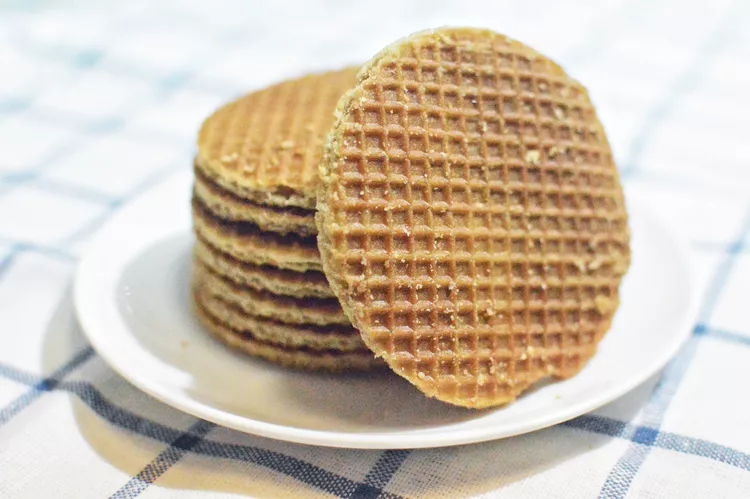Shopping in another country is always a ton of fun, especially in a country with as many amazing souvenirs as the Netherlands. However, before going on a shopping spree, travelers should know which products from the Netherlands can be taken back to their home country and which won’t make it past the customs check. Food, alcohol, and flowers are some of the most popular souvenirs that tourists want to bring back to the United States. While these items are allowed, there are strict import restrictions that travelers must be aware of.
Food Products
Good news: Most of the Dutch food and ingredients that visitors come to know and love on their trip are allowed to be imported into the United States. This includes baked items like the iconic stroopwafels (syrup wafers), sweets such as classic Dutch drop (licorice) and chocolate, peanut butter (pindakaas), various coffee brands, and even cheese. However, cheese must be vacuum-packed to make it through customs, which is a service that many cheese shops offer for international visitors. Unpasteurized or raw milk cheeses are prohibited, but popular varieties like Gouda and Edam are allowable.
Fresh produce can be brought back, though it requires a lot of hassle. Before making a purchase, travelers should check the database of approved items by the U.S. Department of Agriculture to confirm which ports of entry allow specific items, what parts of the item are permissible, and whether an import permit is needed. Once produce is acquired, it will require declaration and inspection upon arrival. This lengthy process may not be worth the effort for many travelers.
Alcohol
Travelers aged 21 and over are permitted to import up to one liter of alcohol into the United States, free of duty and taxes. Importantly, this limit does not differentiate based on alcohol content; wine, beer, liquor, and typical Dutch spirits like jenever, kruidenbitters, and advocaat all contribute to the one-liter total. For those wishing to import more than one liter, additional duty and taxes will apply. Furthermore, it is essential to check the laws of the state that you will be entering, as some states impose stricter limits.
Absinthe can also be brought into the U.S. as long as several conditions are met: the liquor must be thujone-free (having less than 10 ppm of thujone), must not bear the word “absinthe” on the label, and should not contain any imagery suggesting hallucinogenic effects.
Tobacco and Marijuana
Travelers may import a maximum of 200 cigarettes (one carton) or 100 cigars into the U.S. free of duty and taxes. However, Cuban cigars remain under embargo and are therefore prohibited. While marijuana may be popular in locations like Amsterdam, it is strictly prohibited for importation into the United States, even in states that have legalized its use.
Flowers
Pre-approved flowers are permitted entry into the U.S. under strict conditions. Each flower must feature a sticker stating, “To the Plant Protection Service of the United States and Canada,” along with the botanical name of the flower and the date of issuance. Any flowers or bulbs lacking a valid sticker will not clear U.S. Customs and Border Protection, so travelers are advised not to purchase them. Additionally, all plants and any fruits, vegetables, or animal byproducts must be declared at customs and inspected before clearance. For those looking to propagate flowers, obtaining a foreign phytosanitary certificate in advance is essential.




